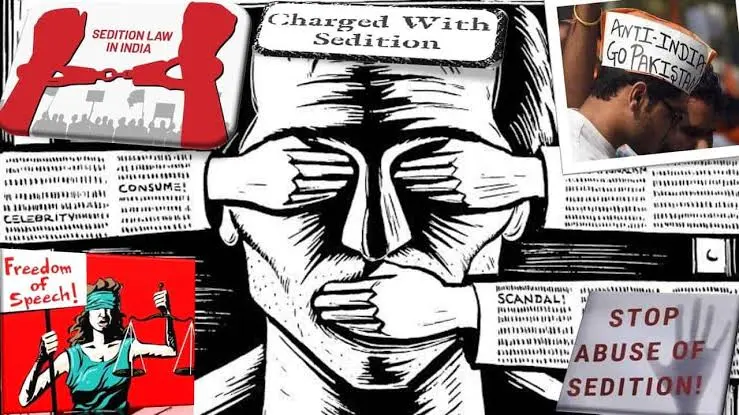Jahanvi Agarwal
On September 12, the Supreme Court refused to wait for the Parliament’s words on the Bharatiya Nyaya Sanhita Bill, a draft law proposed to replace the British-made Indian Penal Code of 1860. Instead, it referred petitions challenging Section 124A, the sedition provision in the Indian Penal Code, to a Constitution Bench.
A three-judge bench led by Chief Justice of India DY Chandrachud found no merit in a suggestion from the government to defer the case instead of referring it to a larger Bench of five judges.
Attorney General R. Venkataramani said a “substantive hearing” of the case immediately, would be premature as the Bharatiya Nyaya Sanhita and Bharatiya Nagrik Suraksha Sanhita Bills, which would replace the Indian Evidence Act and the Code of Criminal Procedure, respectively, were currently being heard by a parliamentary standing committee.
Also, on behalf of the Union, Solicitor General Tushar Mehta pleaded before the court not to “pre-empt” the Parliament.
A new penal law would only apply prospectively, according to a well-settled legal principle, the court claimed as justification for its decision not to postpone the case. Even if the Bharatiya Nyaya Sanhita Bill is successful in getting through Parliament, prosecutions under Section 124A, which are now on pause due to a Supreme Court judgment in May 2022, will continue.
With the assistance of advocates Vipin Nair, PB Suresh, and Prasanna S, senior advocates Kapil Sibal, Arvind Datar, and Gopal Sankaranarayanan have argued on behalf of the petitioners that “words or actions conveying disaffection with the government cannot necessarily be treated as seditious in character in relation to the state. The state cannot be equated with the government of the time”
Mr. Sibal said the new clause proposed in place of Section 124A was “unfortunately worse”. Section 150 in the Bharatiya Nyaya Sanhita Bill avoids using the term ‘sedition’, but describes the offense as any act endangering the sovereignty, unity, and integrity of India.
Mr. Sibal submitted by stating that:
“What they have proposed is far more draconian”
Despite Section 124A being described as “draconian” by Mr. Sibal, Mr. Mehta retorted that the previous government had never taken the time to get rid of the provision all these years. He stated that:
“Why did they not? Now, the current government is doing it.”
The court, however, declined to comment on the bill and its provisions. The Chief Justice states that:
“We will not examine the new law. It is not even a law today, only a proposal.”
The petitioner’s lawyer, Kaleeswaram Raj, argued that a five-judge bench was not necessary because the Centre had raised concerns about Section 124A’s validity in an earlier document that was submitted to the court.
Chief Justice Chandrachud noted that a re-examination of Section 124A would have to take into account a 1962 Constitution Bench decision in the Kedar Nath Singh v. State of Bihar case, which had upheld the legality of Section 124A while limiting its applicability to “activities involving incitement to violence or intention or tendency to create public disorder or cause disturbance of public peace”.
The Chief Justice concluded by stating that:
“As a three-judge Bench, we cannot review the Kedar Nath judgment. Let a five-judge Bench review the 1962 judgment. In case, it says the 1962 judgment does not require modifications and sends it back to us, we are bound by it. The five-judge Bench can also refer it to a seven-judge Bench or it can even make modifications in the interpretation of Section 124A to suit the present times.”


